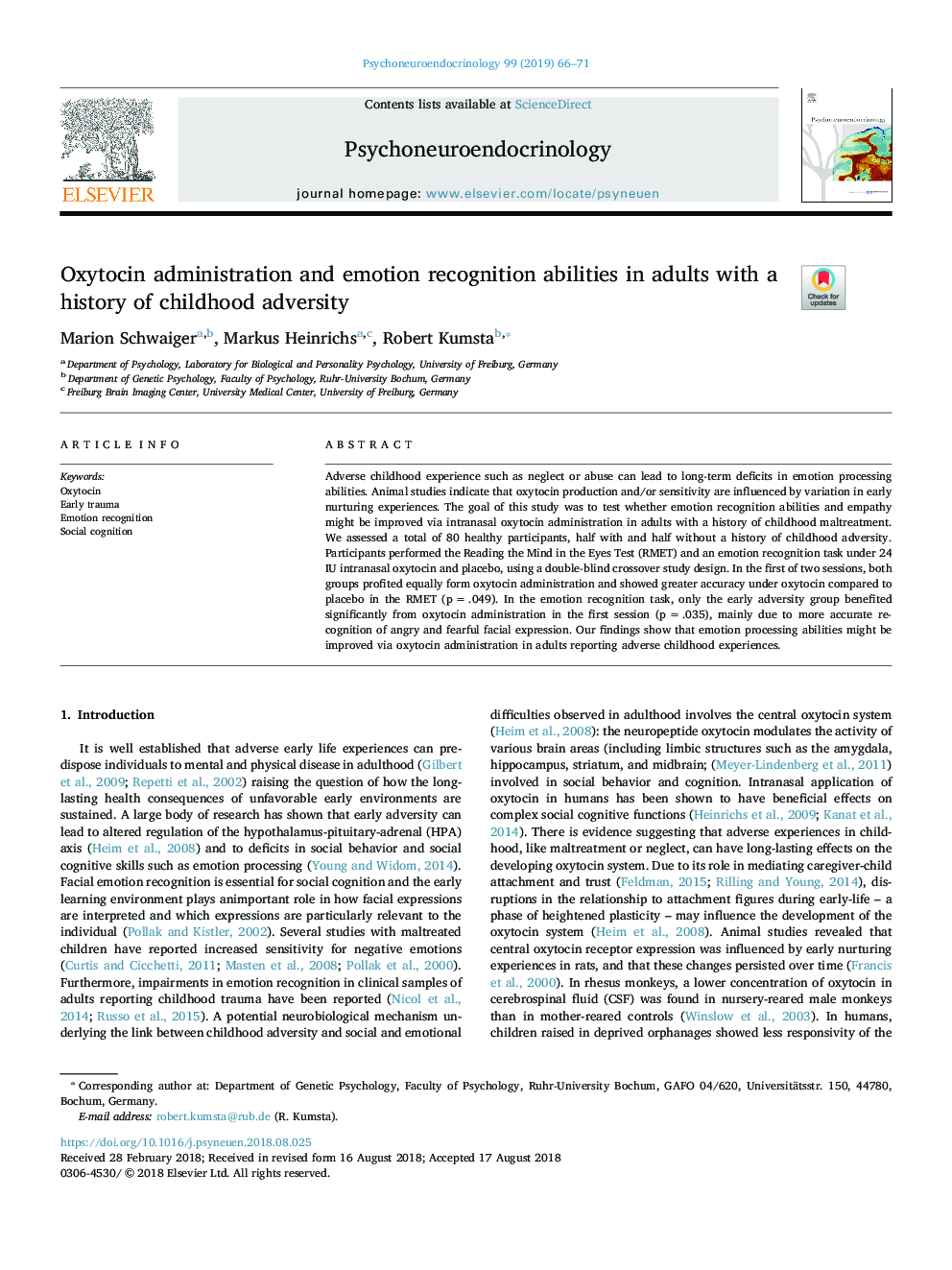| Article ID | Journal | Published Year | Pages | File Type |
|---|---|---|---|---|
| 10139173 | Psychoneuroendocrinology | 2019 | 6 Pages |
Abstract
Adverse childhood experience such as neglect or abuse can lead to long-term deficits in emotion processing abilities. Animal studies indicate that oxytocin production and/or sensitivity are influenced by variation in early nurturing experiences. The goal of this study was to test whether emotion recognition abilities and empathy might be improved via intranasal oxytocin administration in adults with a history of childhood maltreatment. We assessed a total of 80 healthy participants, half with and half without a history of childhood adversity. Participants performed the Reading the Mind in the Eyes Test (RMET) and an emotion recognition task under 24 IU intranasal oxytocin and placebo, using a double-blind crossover study design. In the first of two sessions, both groups profited equally form oxytocin administration and showed greater accuracy under oxytocin compared to placebo in the RMET (pâ=â.049). In the emotion recognition task, only the early adversity group benefited significantly from oxytocin administration in the first session (pâ=â.035), mainly due to more accurate recognition of angry and fearful facial expression. Our findings show that emotion processing abilities might be improved via oxytocin administration in adults reporting adverse childhood experiences.
Related Topics
Life Sciences
Biochemistry, Genetics and Molecular Biology
Endocrinology
Authors
Marion Schwaiger, Markus Heinrichs, Robert Kumsta,
